This post is also available in: 



TIG welding is a commonly used welding process for metals that are considered challenging to weld, such as titanium. It is the easiest and safest method for achieving high quality with small equipment investments. However, the number of weld passes required makes TIG welding slow and laborious, and productivity suffers. The double-pulse feature of Kemppi’s new MasterTig has been developed to make TIG welding more efficient.
In Finland, the welding of titanium has been considered such a demanding task that fulfilling the quality requirements has typically been more important than productivity. However, as the use of titanium has become more common, companies are starting to look for ways to improve the productivity of traditional TIG welding, especially when welding thin material (less than 6mm). The costs of titanium welding are high compared to the quantity of finished weld, so even small increases in productivity are valuable.
Typically, titanium has a good strength/weight ratio, excellent corrosion resistance and good heat resistance properties. These properties are so important in some of the most demanding projects that titanium is used despite its high price.
When developing the new MasterTig product family, Kemppi wanted to increase the efficiency of TIG welding, especially with thin materials (0.5-6mm). This is how the double-pulse TIG process variation was created.
Benefits and use cases of double-pulse TIG
Double-pulse TIG combines traditional slow pulsing with fast pulsing. Typical benefits of slow pulsing include:
- Better control of weld pool
- Ease of position welding
- Visually appealing welds
The benefits of fast pulsing are:
- Better focused arc
- Higher travel speed
- Better control of heat input
- Deeper penetration
With Kemppi’s new MasterTig product family, the features and benefits of slow and fast pulsing are combined effortlessly, and the range of optimal welding applications expands significantly. The best-suited applications for double-pulse TIG are:
- Thin materials
- Fillet and corner joints
- Welds with high visual quality requirements
- Stainless steels
- Materials that require low heat input, such as high-strength steels, duplex steels and superaustenitic steels
- Challenging non-ferrous metals welded with DC, such as titanium
Good results when tested in a real-life working environment
Turula Engineering produces high value added products. The company offers machinery/equipment manufacturing services, for example for the mining, metal, energy and water industries. Nowadays Turula Engineering Oy is part of AG Engineering LLC and they are located in Outokumpu, Finland. They participated in piloting Kemppi’s new MasterTig before the launch of the product family. The company’s interesting and challenging pressure equipment project required a lot of titanium welding and was ideal to show the benefits of Kemppi’s new double-pulse TIG in a real-life use case.
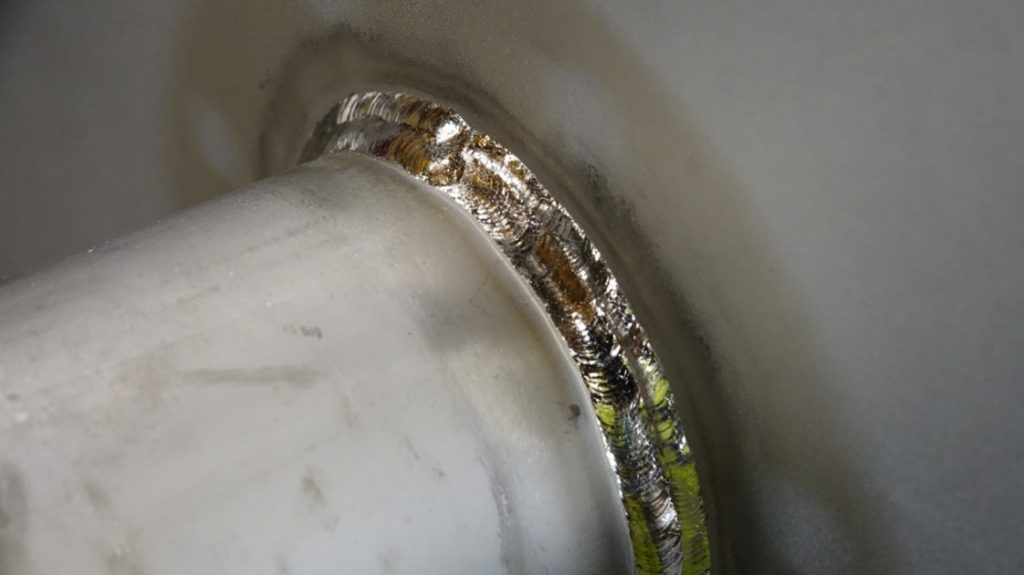
For Turula Engineering, double-pulse TIG helped to reduce the number of weld passes in the production welding of titanium pipes from three to one, which caused significant time and cost savings. Already in the initial tests, welding the most common joint of the project with only one weld pass proved to be significantly easier and more secure. According to welders, double-pulse “mixes” the molten pool in a way that small hand inaccuracies do not immediately cause insufficient penetration. In addition to this, the permitted weld color was achieved more easily as the heat input of double-pulse TIG is lower compared to traditional TIG processes. Welders also agreed that end of welding is easier to control – when welding titanium, there is a risk that the root is deeper in the end point. In addition, welding deformations were smaller due to lower heat input.
Thanks to the good results in test welding, double-pulse TIG was selected for use in the majority of the project’s welding applications, and the welding lead times were reduced significantly. In addition to this, nearly all inspections and tests were passed without corrections.
In TIG welding, even small process variations can significantly ease bottlenecks in welding production. Double-pulse TIG is one step forward for more cost-effective welding, without compromising on good quality.







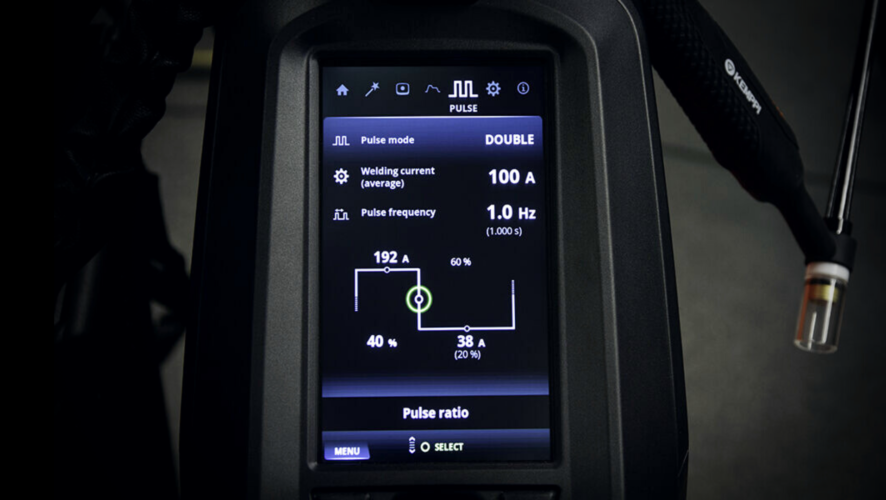
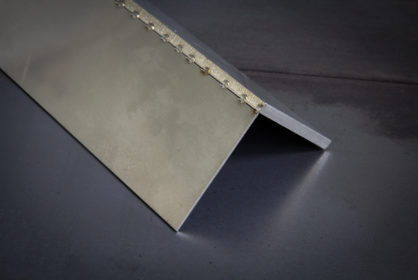
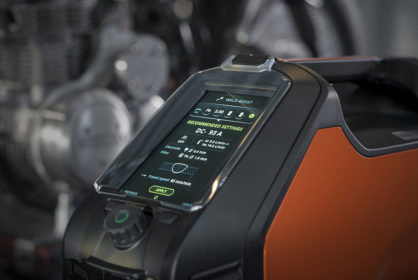
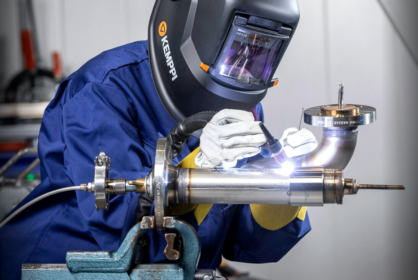
need more information about double pulse tig welding current wave form for research
Hi, have you read the white paper about double pulse TIG welding? You’ll find it here: https://www.kemppi.com/en-US/download-center/file/double-pulse-tig-takes-tig-welding-of-steels-to-a-new-level/